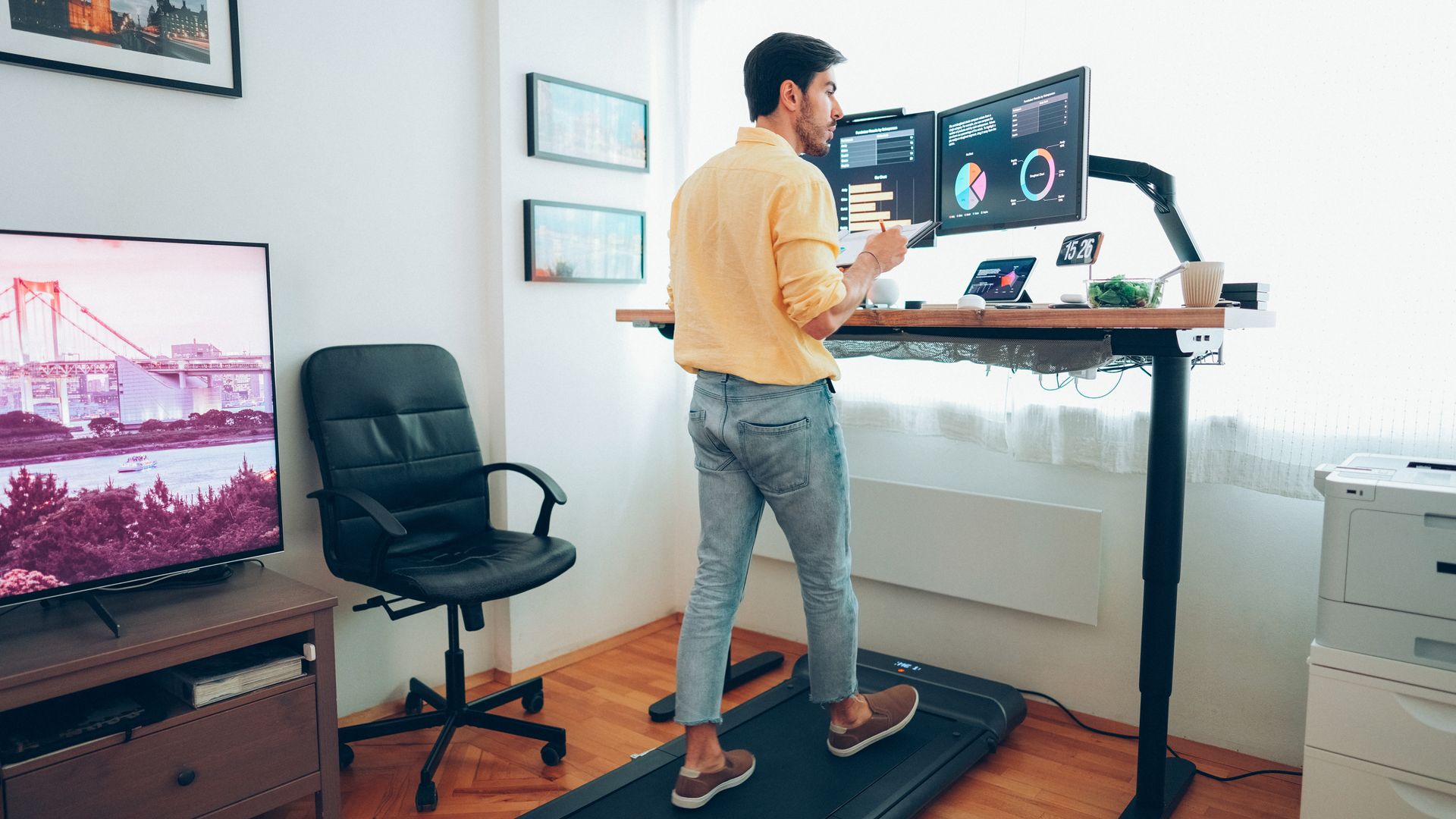standing deskContinue reading standing desk
Office life might look a little different than it used to, thanks to remote working, but the amount of time you spend sitting may be about the same. While it’s well-known and studied that sitting isn’t great for your heart or overall health, we want to ensure you know what to do if you find yourself sitting more than you’d like. Here are six things to counteract sitting and keep your heart in tip-top shape.
6 Ways to Keep Your Heart Healthy
1. Schedule Breaks
Have you ever looked at the clock to find that the workday is nearly gone, yet you’re still sitting in the same place? Don’t worry; it happens to us, too. Try setting an alarm to remind yourself to get up and move or stretch. If you own an apple watch, the device will alert you to stand for at least one minute every hour. The experts at the University of Michigan recommend moving for at least three minutes every thirty to sixty minutes. Whatever amount you decide, taking time to be on your feet will reduce your sedentary time leading to better health outcomes.
Related Reading: 5 Desk-Friendly Stretches to Help You Destress
2. Revamp Your Desk
Traditionally, desks have you in a seated position, but a few genius inventions can make your desk more of an active experience. Stand-up desks allow you to stand while working to help with better posture and less back pain. Others are adding a walking pad under their stand-up desk to allow for walking while working to burn extra calories and increase energy levels. If sitting is more your thing, consider a seated elliptical, this keeps your legs moving while remaining at your traditional desk. Pro Tip: Ask your employer if a budget is available for an at-home office setup or alternative desk options.
3. Focus on Food
Let’s face it, sometimes sitting is necessary, like when you have a long travel day or back-to-back meetings. On days when you have to be more sedentary, focus a little more on your food choices. Aim to nourish your body with whole grains, fruits, vegetables, legumes, and lean proteins. Ditch the processed items that may be higher in sodium, saturated fat, and sugar. These intentional food choices will help your heart and energy levels – a win, win!
4. Manage Stress
Life can be stressful, but living in a state of chronic stress is not ideal for your heart. Not only can it impact your blood pressure, but it can also put you at a higher risk of stroke or heart attack. First, work on identifying what is causing the stress. Then, create a plan to help the stress feel more manageable. Some strategies that may help include journaling, yoga, meditation, or meeting with a therapist.
Related Reading: How to Stop Stress Eating
5. Prioritize Exercise
Moving during the day helps to counteract a sedentary lifestyle, but it shouldn’t take the place of exercise, according to the experts. Adults should strive for 150 minutes of moderate-intensity aerobic activity per week, with an additional two days of muscle strengthening. Ideally, the American Heart Association recommends that adults carve out 300 minutes each week for exercise to optimize heart health. Remember: starting small and working your way up to a routine that feels right for you is totally ok.
6. Get Enough Sleep
Did you know sleep impacts the health of your heart? It’s so important that in 2022, sleep was added as a key metric for improving and maintaining cardiovascular health, according to the American Heart Association. Just how much, you ask? Experts recommend seven to nine hours of consecutive sleep per night. One thing to note is that more is not better when it comes to sleep – stay within the range to keep your heart at its healthiest.
RELATED READING: 3 FOODS FOR BETTER SLEEP
The Bottom Line
Experts agree that heart health involves moving more, balanced nutrition, sound sleep patterns, and managing stress levels. Work on adjusting one or more factors above to optimize your heart health, even if you sit for work.

